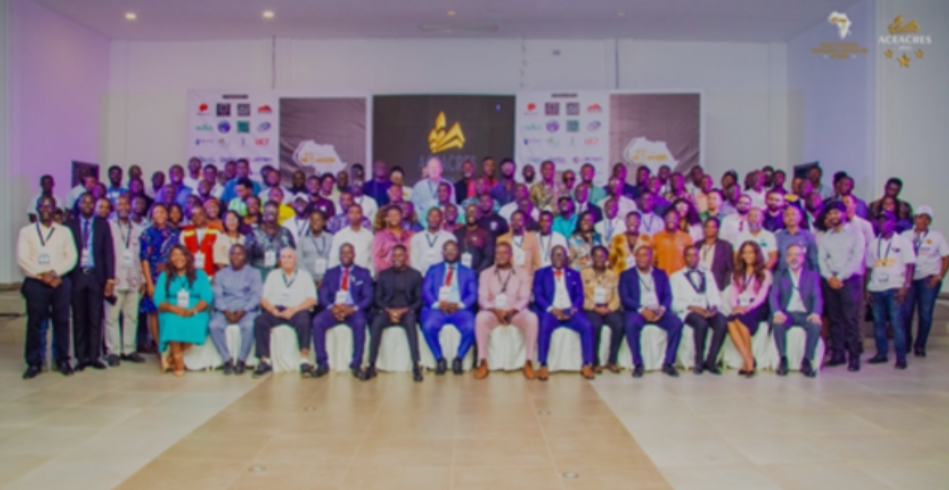Africa is at a crossroads of rapid change and immense potential. With an increasing population, growing urbanization, and an urgent need for sustainable development, infrastructure has emerged as the backbone of the continent’s transformation. In Ghana and across West Africa, technology stands as a pivotal force to unlock opportunities, bridge gaps, and drive inclusive growth in the area of infrastructure development.
The Importance of Infrastructure Development
Infrastructure—roads, bridges, railways, ports, energy grids, and communication networks—forms the foundation for economic growth and societal progress. In Ghana, as in many parts of West Africa, inadequate infrastructure has been a significant bottleneck to development. According to the World Bank, sub-Saharan Africa faces an infrastructure financing gap of $68-108 billion annually. This deficit affects critical sectors such as transportation, energy, healthcare, and education.
However, with the integration of cutting-edge technology, this challenge can be transformed into an opportunity. “Africa’s future will be defined by how effectively it harnesses technology to solve its development challenges,” says Dr. Akinwumi Adesina, President of the African Development Bank (AfDB). The AfDB has been at the forefront of advocating for innovative solutions to bridge infrastructure gaps, with technology playing a central role in these efforts.
Key Technologies Transforming Infrastructure in Ghana and West Africa
Digital Twin Technology
Digital twin technology involves creating virtual replicas of physical infrastructure assets, enabling real-time monitoring, maintenance, and optimization. This technology has the potential to revolutionize infrastructure projects in Ghana. For example, digital twins can be applied to major road networks and bridges, providing engineers with insights into wear and tear, ensuring timely repairs, and extending the lifespan of these critical assets.
Blockchain for Transparency and Efficiency
Corruption and inefficiency are common challenges in large-scale infrastructure projects. Blockchain technology can enhance transparency by creating immutable records of transactions, contracts, and supply chain activities. In Ghana, blockchain has already shown promise in land registry systems, ensuring secure and tamper-proof documentation. Expanding its use to infrastructure projects could foster accountability and attract foreign investment.
Smart Cities and IoT Integration
The concept of smart cities is gaining traction in West Africa, with Ghana’s capital, Accra, taking steps toward becoming a smart city. The Internet of Things (IoT) can be integrated into urban planning to optimize traffic management, energy usage, and waste disposal. For instance, IoT-enabled sensors can monitor traffic flow in real-time, reducing congestion and improving commuter experiences.
Artificial Intelligence (AI) for Predictive Analytics
AI-powered tools can predict infrastructure needs based on population growth, urbanization trends, and environmental factors. In West Africa, AI applications in agriculture have already demonstrated success. Extending its use to infrastructure planning could help governments prioritize projects and allocate resources more effectively.
Renewable Energy Technologies
Energy is a cornerstone of infrastructure development. In Ghana, renewable energy sources such as solar and wind have gained prominence, supported by technological advancements in energy storage and grid management. The construction of solar farms in northern Ghana is a testament to the transformative potential of clean energy in powering infrastructure projects.
Case Studies: Technology in Action
The Tema Port Expansion Project (Ghana)
One of Ghana’s most ambitious infrastructure projects, the Tema Port expansion, utilized advanced engineering technologies to increase its capacity. The use of 3D modeling and simulation tools during the design phase allowed for precise planning and execution. Today, Tema Port stands as a hub for regional trade, showcasing how technology can boost economic integration.
Eko Atlantic City (Nigeria)
Although outside Ghana, Eko Atlantic City in Nigeria provides a blueprint for integrating technology into urban infrastructure. This coastal city was built using innovative land reclamation techniques and features smart city technologies for efficient energy and water management. Ghana can draw lessons from this project to develop similar initiatives in coastal regions.
The Role of Policy and Collaboration
Technology alone cannot drive transformation; enabling policies and partnerships are equally critical. The Ghanaian government’s Digital Transformation Strategy aims to create an environment where technology can thrive. Public-private partnerships (PPPs) are essential for mobilizing resources and expertise. For instance, the collaboration between the Ghana Investment Promotion Centre (GIPC) and global tech firms has fostered innovation in infrastructure development.
Challenges and the Way Forward
Despite its potential, adopting technology in infrastructure development comes with challenges. Limited digital literacy, high costs of technology adoption, and inadequate regulatory frameworks can hinder progress. Addressing these barriers requires a multi-stakeholder approach involving governments, private sector players, and development partners.
Conclusion
Technology has the power to redefine Africa’s infrastructure landscape, unlocking opportunities for growth and prosperity. In Ghana and West Africa, integrating digital solutions into infrastructure projects can address existing gaps while building resilience for the future. By leveraging technologies such as digital twins, blockchain, AI, and renewable energy, Ghana can position itself as a leader in the region’s transformation journey.
As Africa’s urban centers expand and its economies evolve, the time to act is now. With the right investments, policies, and partnerships, technology can serve as the engine driving Africa’s infrastructure revolution, ensuring a brighter and more connected future for generations to come.
Written by: Wilson Ronnie Odoom, Independent contributor





